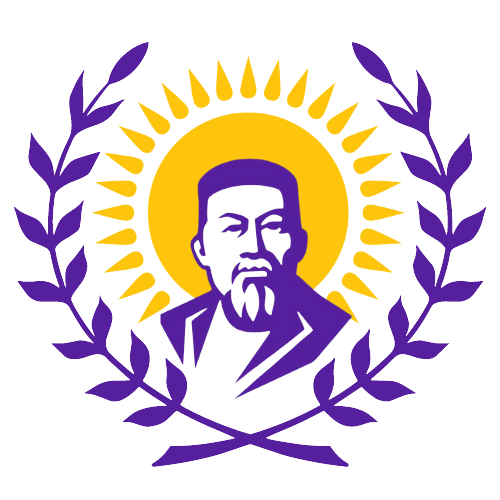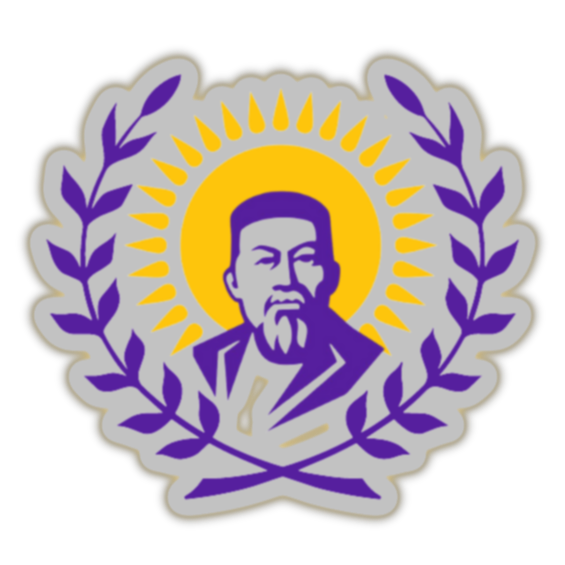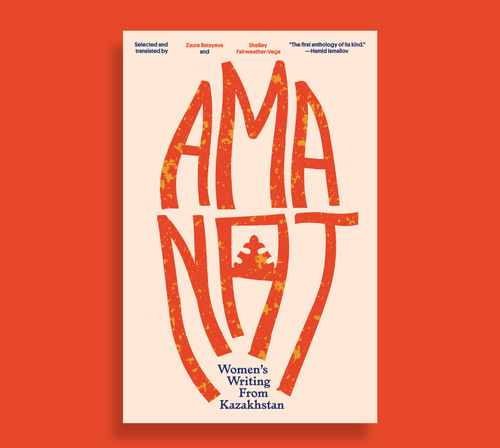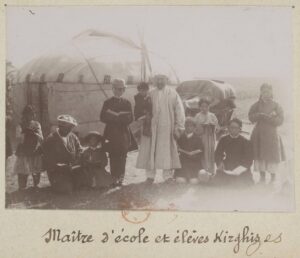This July, Gaudy Boy will publish an English-language anthology of Kazakhstani women’s writing entitled Amanat.
The anthology brings together short stories and essays by 13 women from three generations (ranging in age from 30 to 75) and hailing from all parts of Kazakhstan. Reflecting the linguistic diversity in their country, some write in Kazakh and others write in Russian. Now they can all be read in English.
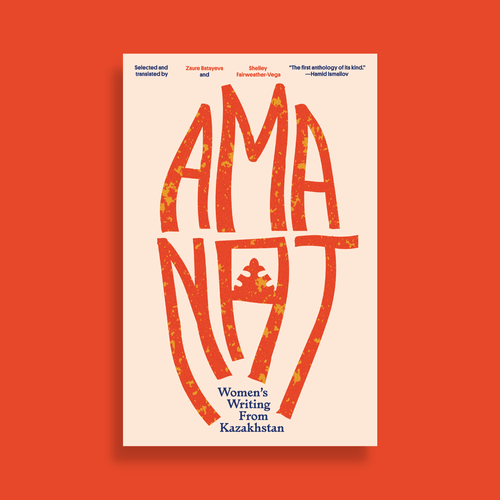
While my colleague Zaure Batayeva collected the stories, communicated with the authors, and translated the Kazakh-language texts that would eventually make up Amanat, my job was to translate the stories that were originally written in Russian. I’m a professional translator who has been working with Central Asian authors for almost a decade now, and I have a good reading knowledge of Uzbek and some knowledge of Kazakh, but I mostly make my living as a certified translator of Russian. And right now, in the spring and summer of 2022, in the wake of Russia’s brutal invasion of Ukraine, a Russian translator is a complicated thing to be. All around me, colleagues who have long focused on Russian literature and Russian culture are despairing. How can we accept funding from sources related to the Russian government? How can we justify devoting time to the study of Russian society or art or architecture while next door, in Ukraine, those things are being ruthlessly destroyed? How can we speak of the beautiful aspects of the Russian culture and language when that culture and language are being weaponized to negate and annihilate Ukrainian culture? And most to the point, for my fellow literary translators: Will anyone ever want to publish or read a Russian book again?
All this worrying has been productive for some of my colleagues, who have pivoted quickly to translating war writing from Ukraine, powerful texts that demand the world’s attention. Thanks to this, readers in other languages—and, I have to suspect, many of the translators themselves—are turning their attention to Ukrainian arts and letters for the first time. Better late than never, certainly; their efforts can only be applauded. I, too, rushed to translate a war poem by a young Ukrainian poet. But I had little time to spend on that work because my schedule was full of projects already arranged: translations of Central Asian literature. Nobody is canceling or reconsidering these Uzbek and Kazakh projects (as has happened with English translations of works from the Russian Federation), but there has also been no unusual rush to produce and publish them (as is still happening with translations of work from Ukraine and by Ukrainians). This puts me, as a Russian-language translator who does not focus on either Russian or Ukrainian literature, in a distinct and somewhat uncomfortable position.
With all respect to the vital war-related translation work that is happening right now, I want to argue that this is also the perfect time to translate and publish Central Asian literature in English. Most fundamentally, this is because every time is the perfect time to read translated work; we can never get too much of other people’s ideas and stories. But more specifically, the war in Ukraine has reminded us—both Russia-watchers in the West and a large portion of the general public—that the huge geographical area we often think of as the “post-Soviet space” is much more complex (culturally, linguistically, politically) than we usually bother to acknowledge. That space, of course, includes Central Asia.
Both Kazakhstan and Ukraine have grappled, both philosophically and practically, with the legacy of their Russian colonial and Soviet past and struggled to adjust to a post-Russian future.
In Kazakhstan, for instance, there are striking similarities to the pre-war situation in Ukraine. Both countries are caught between bigger powers vying for influence (Russia and Europe in the latter case, Russia and China in the former). Both nations have been rediscovering their own histories, with pride and also pain. Both countries have marked linguistic diversity (Russian, as a colonial language with dwindling influence, and local languages that are gaining in popularity). Both places have experienced recent political upheaval accompanied by violently suppressed protests. Both countries have grappled, both philosophically and practically, with the legacy of their Russian colonial and Soviet past and struggled to adjust to a post-Russian future.
Many of the recurring themes in Amanat reflect this shared struggle, as it has been observed by women writing in Kazakhstan ever since independence. Asel Omar’s two stories in the collection provide one example. Her first, “French Beret,” describes one family’s small triumph against political repression in the Stalinist era. Her second, “Black Snow of December,” explores the protagonist’s conflicting thoughts about the Jeltoqsan protests of 1986, and how members of different social strata in Almaty interacted as those events played out. Family relationships are another persistent theme, especially the ways in which they have changed with the times in Kazakhstan. In Oral Arukenova’s story “Amanat,” siblings debate how to honor their mother’s last wishes; Zira Naurzbayeva contemplates the relationships between mothers and daughters in her “Beskempir” and “My Eleusinian Mysteries;” in Zhumagul Solty’s “Awkward Conversation,” a daughter frets over her parents’ relationship; and Madina Omarova’s narrator ponders her own responsibility for a seemingly motherless neighborhood girl in “Once Upon an Autumn Evening.” Perhaps the most striking motherless girl in the collection is Verka, the young trickster in Olga Mark’s “The Lighter,” who—like the female protagonists in the stories by Zaure Batayeva, Aigul Kemelbayeva, Aya Ömirtai, and Raushan Baiguzhayeva, as well as in Arukenova’s cycle “Procedures Within”—is experimenting to find the best way to make a living, or even establish a career, in a world transformed. Finally, Lilya Kalaus treats the topic of old political wounds with almost a slapstick touch in her “Operatic Drama,” in which two male characters squabble over whose ancestors were most repressed by the Soviet regime. These themes will surely sound familiar to people throughout the so-called “post-Soviet space,” and in every other part of the world besides. And several of the stories in Amanat could truly take place in any city in the world—Omarova’s “Poet,” for example, published here, only confirms it geographical location in the story’s last sentence.
All this helps me answer the question I have been asking myself: How do I justify translating Central Asian writers while the eyes of the world are on Ukraine? I translate Central Asian literature because its authors address universal themes from their own unique perspective. I translate it because there is more than one place in the world where Russian culture has influenced authors who write with startling beauty and power, but where Russian policies have frequently resulted in disaster. And I translate it because Central Asian authors should not be required to wait until catastrophe strikes, as it has in Ukraine, for their chance to be read outside the region.
The Poet
By Madina Omarova. Translated from the Kazakh by Zaure Batayeva
Autumn had come quickly to Almaty. The summer heat had disappeared in one day, and a cool wind from the mountains had enwrapped the city. The city became unhappy.
I noticed the man first. We were walking towards each other. Suddenly his eyes fell on me. He stared and then smiled. He started walking faster. I also smiled and took his hand when he approached. He hugged me, squeezed me, and kissed me. He had aged. I’m not saying that he had become an old man, but he looked older. He said we should go to a nearby café and have a meal. I had nothing else to do, so I followed him. He took tea for himself. I asked for laghman noodles and fifty grams of cognac. And for bread. “And some bread, of course,” I shouted to the waiter.
“I’m exhausted,” he said. “Lonely.”
“Where’s your wife?”
“The wife’s there, but I’ve got nobody to talk to.”
“Hmm . . .”
“When we were working together, did I ever hit on you?”
“No, never.”
“That’s strange.”
“You hit on every girl around, but not me, not a single time.”
“Interesting.”
“Perhaps I’m not your type.”
“No, you are, you are.”
I wanted to smoke. “If I remember right, you don’t smoke, do you?”
“I don’t. I go to the Union every day. Just wander around and go back home. Nobody’s there.”
“Why not?”
“All my friends are dead. They’re in another world.”
“I see.”
“How about we make love?”
“I don’t know, nothing interesting will come of that.”
“You’ve never slept with me. If you do, you’ll never leave me.”
“ Maybe.”
“More cognac?”
“No, I need to go back to work.”
“I’m exhausted,” he said again. “This world has become meaningless. I’m tired. Everything is in vain.” He squeezed my hand. Autumn falls quickly in Almaty.
Amanat: Women’s Writing from Kazakhstan (Gaudy Boy, 2022, ISBN 9780999451489, $22.00). Selected and translated by Zaure Batayeva and Shelley Fairweather-Vega with contributions by Sam Breazeale. Links to purchase: in North America, in Singapore/Southeast Asia, in Europe.
